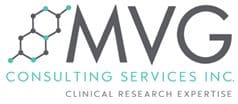
There has never been a greater need for technological integration into healthcare practices as there is now. The COVID-19 pandemic has highlighted the limitations and difficulties of the healthcare industry, which up to this point, has been sluggish to adopt many of the advancements necessary to mitigate the current strains. Fortunately, the race to mediate the hinderances caused by COVID-19 and to find a treatment and cure for the infection has sparked much needed urgency towards the adoption of these technologies.
In the realm of clinical trials, the continuation of halted trials, the development of new drugs and the execution of new trials, hinges upon the ability of development teams and healthcare practices to integrate these new technologies. While the possibilities across technologies are far ranging, some are more readily accessible, already being implemented and proving their positive impact.
For example, the recent partnership between TRHC and Regence explores the use of analytic technology to predict patient outcomes through the use of already existing data, meaning the risk to patients in the search for a viable treatment will be greatly decreased. The use of patient data by third party companies has been an issue of contention due to the required security of patient information. However, companies like Regence are now able to de-identify data in such a way that ensures the protection of patient identity, while still allowing third party access to that data. With de-identification becoming a more widespread capability, partnerships like this one will be essential to the continued utilization of such important data.
In addition to leveraging new and improved data analytic techniques, the implementation of virtual clinical trials is an essential step towards improving the capabilities of the healthcare industry as a whole. Telemedicine had already seen a surge, and with the service now bundled into the fee-for-service Medicare package, it will continue to play a central role in patient check-ups and data collection. There is an abundance of technological tools at the ready to help progress the healthcare industry forward not only through this trying time, but far beyond, and it appears as though COVID-19 has provided the urgency necessary to really set this positive change into motion.
The question of regulatory compliance pairs directly with the discussion of new healthcare treatments and techniques. While the hurdles of regulation may have prior slowed the adoption of some of these new technologies, COVID-19 has proved the perfect catalyst for adaptation. The current need for expedience has offered a significant push towards facilitating the adoption of these tools and methods. Regulations have been added and adapted to assist the initiatives searching for a treatment for COVID-19, and there will undoubtably be more to come. The importance of having a partner adequately prepared to work with you at such a vital time cannot be understated. MVG is dedicated to ensuring the regulatory compliance of its clients amidst changes past, present, and future, and is motivated to aid those partners in gaining approval for their newest therapies.
MVG Consulting Services specializes in helping small to medium sized biotechnology and pharmaceutical companies with their clinical development programs and we can provide start-up and virtual companies with the necessary resources to begin their clinical development program.
Services include:
- Clinical Research Consulting Services
- Clinical Trial Development
- Project Rescue
- Inspection Readiness
MVG provides highly qualified clinical research professionals who seamlessly become a part of your project team. Additionally, we provide virtual companies with an entire project team that encompasses all aspects of clinical development.
We invite you to fill out the form below to learn more about how MVG Consulting can help you with your clinical devleopment needs.

